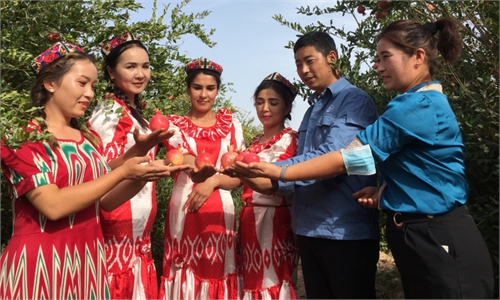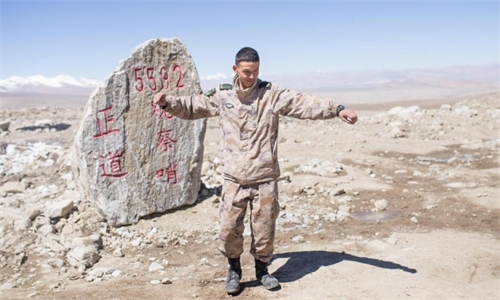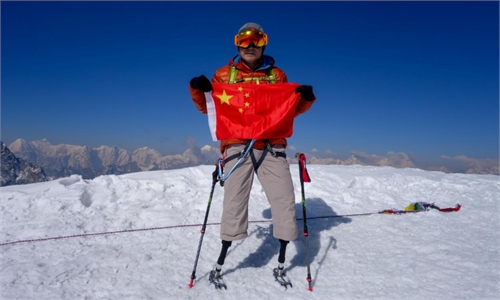Chinese people born in 1950s, 1980s, and 2000s experience different youth, yet share same national dream and passion
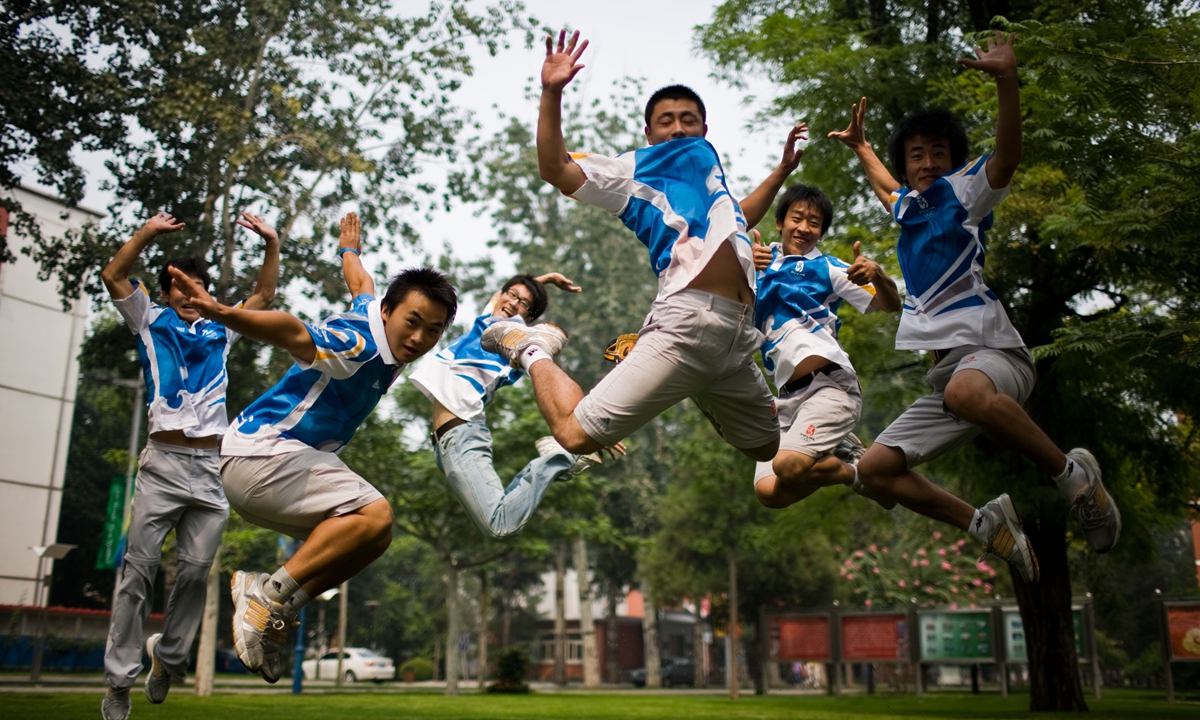
Volunteers for the Beijing 2008 Olympics Photo: Li Hao/GT
Editor's Note:
Under different historic periods, the environment in which the Chinese youth have grown up, the events they have experienced, and the opportunities they were offered are entirely different. However, what has never changed is that they have always played a vanguard role in the quest for national rejuvenation.
In late April, a white paper titled the "Youth of China in the New Era" was published ahead of the 100th anniversary of the founding of the Communist Youth League of China. "The Chinese Dream is a dream about history, the present, and the future. It is cherished by all of the people, but even more so by the young," it read.
In this vein, the Global Times interviewed people born in the 1950s, 1980s, and 2000s, who had varying experiences in their formative years, to illustrate the dream, the passion, and the beauty of different generations of Chinese young people.
Born in 50s: 'knowledge, jobs and better opportunities are our Chinese Dream'
Born in the dawn of the People's Republic of China, the destiny of 1950s generation is closely linked to every step of the development of the motherland. They are the builders who dared to challenge and endure hardship. After leading and witnessing countless breakthroughs and changes, they remained passionate and full of hope for the youth of today's China.
In 1970, 17-year-old Lü Chunling was sent to a farm in Heihe, Northeast China's Heilongjiang Province, 2,600 kilometers away from his hometown Shanghai.
Including Lü, some 1.2 million Shanghai youngsters left their city homes for remote rural areas in the 1960s and 70s to engage in farming at the call of the country.
Those were bittersweet years for the youngsters who were known as zhiqing (educated youth). "Nonetheless, even in those hard days, many of us did not give up learning or preparing ourselves for a promising future," Lü told the Global Times.
After returning to Shanghai, Lü worked at the city's civil administration for 35 years until retirement. Now, the 69-year-old serves as deputy director of a local charitable foundation caring for zhiqing. The foundation has helped more than 300 zhiqing in need and their families.
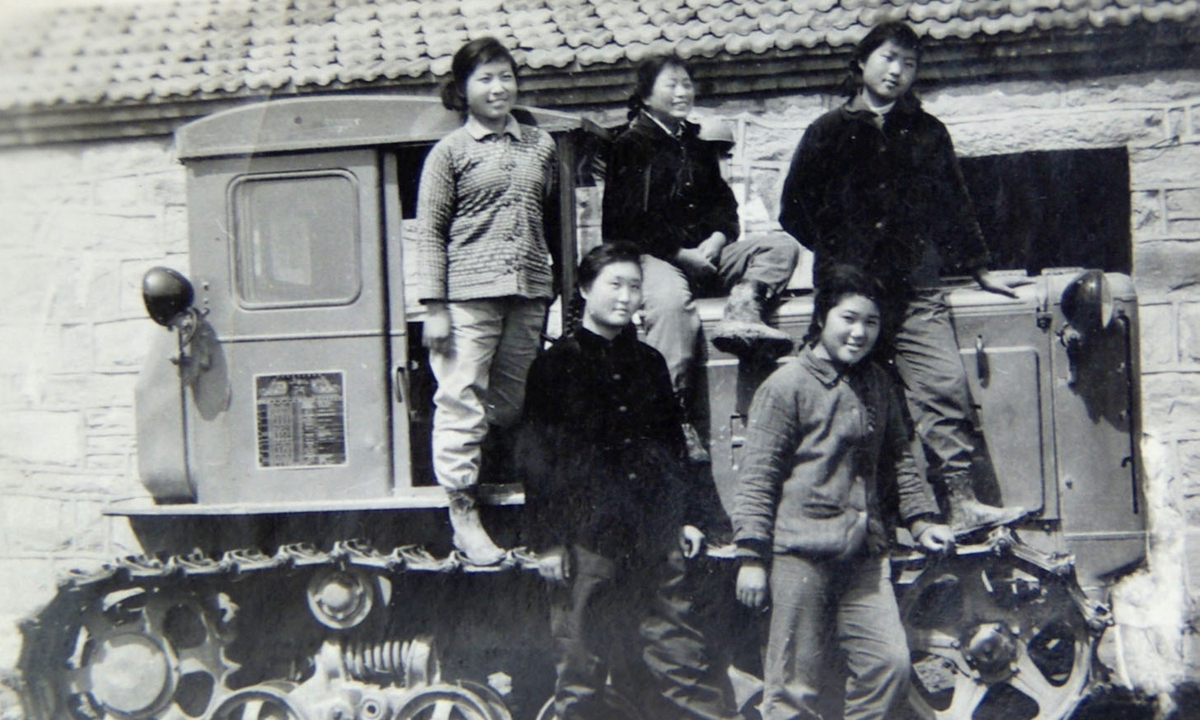
Zhiqing, or educated youth in 1970s Photo: IC
"In the hard days, we seldom talked about things like 'beauty' or 'dream,' which we thought were very far away from our lives," Lü said. "Now, I realize that what we chased for at that time - knowledge, jobs and better opportunities - are actually the main elements of the Chinese Dream of our generation."In Southwest China's Sichuan Province, for celebrated author Alai, who later became the youngest recipient of the Mao Dun Literature Prize, the turning point of his fate when he was young began at the moment he heard the news of the resumption of the national college entrance examinations, or gaokao, in 1977. Some 5.7 million people sat the examination nationwide. Since then, the examination has become an important opportunity for millions of Chinese youth to compete for the opportunity of entering college every year.
After graduation, Alai, who has been immersed in the ocean of knowledge, decided to measure the land of his homeland on foot and eventually presented his famous novel Red Poppies in 1998.
"As stated in the white paper, the material conditions that support youth development in China have improved significantly over the past decades, with a growing confidence in the country's vibrant culture," Alai told the Global Times.
Born in 80s: 'I witnessed how China has grown to be a pioneer'
The 1980s was a passionate era in China. People born in this era grew up when China's economy increasingly developed and became an influential power on the world stage. Whether they are scientists or grassroots officials, the understanding of "beauty," "success" and the "Chinese Dream" of the post-1980s generation cannot be isolated from the context of China's booming era. They reflect the exuberance of young people in China's soaring orbit.
Ma Yuting, born in 1984, is the director of the Immunization Platform at the Suzhou Institute of Systems Medicine (SISM). She has promoted studies on how stress modulates natural or therapy-induced immune surveillance against cancer. She won the 26th China Youth May Fourth Medal alongside 154 other young scientific and technological talents and groups.
In Ma's eyes, her discoveries made through scientific research are a beautiful thing.
"I have witnessed how China has grown from a relatively backward player with gaps in hardware and facilities to a pioneer who keeps pace with, and even leads, some scientific research areas. And I feel lucky and proud to be a Chinese scientist," Ma said.
Wang Zhiqi, born in 1981 in Northwest China's Gansu Province, has lived in Xinjiang Uygur Autonomous Region for almost two decades. In the past six years, he has been devoted to working in local villages, leading residents to shake off poverty and become wealthier.

Wang Zhiqi (second right) and the villagers Photo: Courtesy of Wang
At the age of 18, Wang joined the air force. "During my service, I developed a dream to go to Xinjiang," he said, adding that "young people should go where the motherland needs them.""When we were young, my generation experienced major events such as the NATO bombing of the Chinese Embassy in Belgrade in 1999 and the SARS outbreak," Wang said.
"The sacrifice of pilot Wang Wei in 2001 especially affected me a lot. Even today, I would say that if the motherland needs me to defend it, I would."
In Wang's opinion, those Chinese who were born in the 1980s bear the sense of responsibility and duty and are always willing to devote themselves voluntarily.
To Wang, the beauty in his mind is the magnificent scenery of Xinjiang, the happy smiles and dances of the residents of the village, as well as their good life.
Born in 00s: 'My love is crystal clear, it is only for China'
The Beijing 2022 Winter Olympic Games witnessed China's younger generation shine on the global sporting stage. Many post-2000s athletes, including snowboarder Su Yiming in Team China impressed the world.
The post-2000s generation represents individuals who are well-educated, experienced in world affairs, and knowledgeable, and have a natural sense of patriotism. They actively express their love for China in various ways, and are always ready to protect the interests of their motherland.
Zhou Hao, 22, is one of numerous young Chinese influencers on social media who are keen on spreading Chinese culture through various aspects, including traditional operas, ancient poetry, and hanfu (traditional Chinese costume).
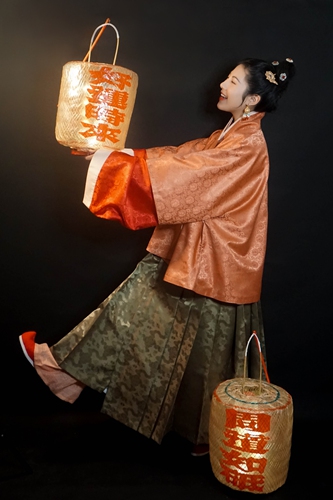
Zhou Hao wears hanfu of the Ming Dynasty (1368-1644) style. Photo: Courtesy of Zhou Hao
Zhou is known by netizens at home and abroad mainly for a "time machine program" she initiated in 2019.The program encourages Chinese youths to learn about the beauty of traditional Chinese clothing, through either trying to wear it once, or, at the very least, enjoying the portraits of Zhou herself in different sorts of hanfu.
Zhou has also authorized some netizens to share her hanfu portraits on overseas social media platforms.
"We love our own culture, and we welcome foreign culture," she told the Global Times. "The 'beauty' we post-2000s individuals chase is diversified and inclusive - exactly the two precious characteristics I have learned from traditional Chinese culture."
While many Post-2000s individuals are just getting ready to pursue their dreams, some have already chosen to safeguard the country and its people on the frontline.
Rouzimaiti Tuerxun, a 20-year-old from Kashi, Northwest China's Xinjiang Uygur Autonomous Region, appealed to serve at the "5592" observation point three months after he was enlisted.
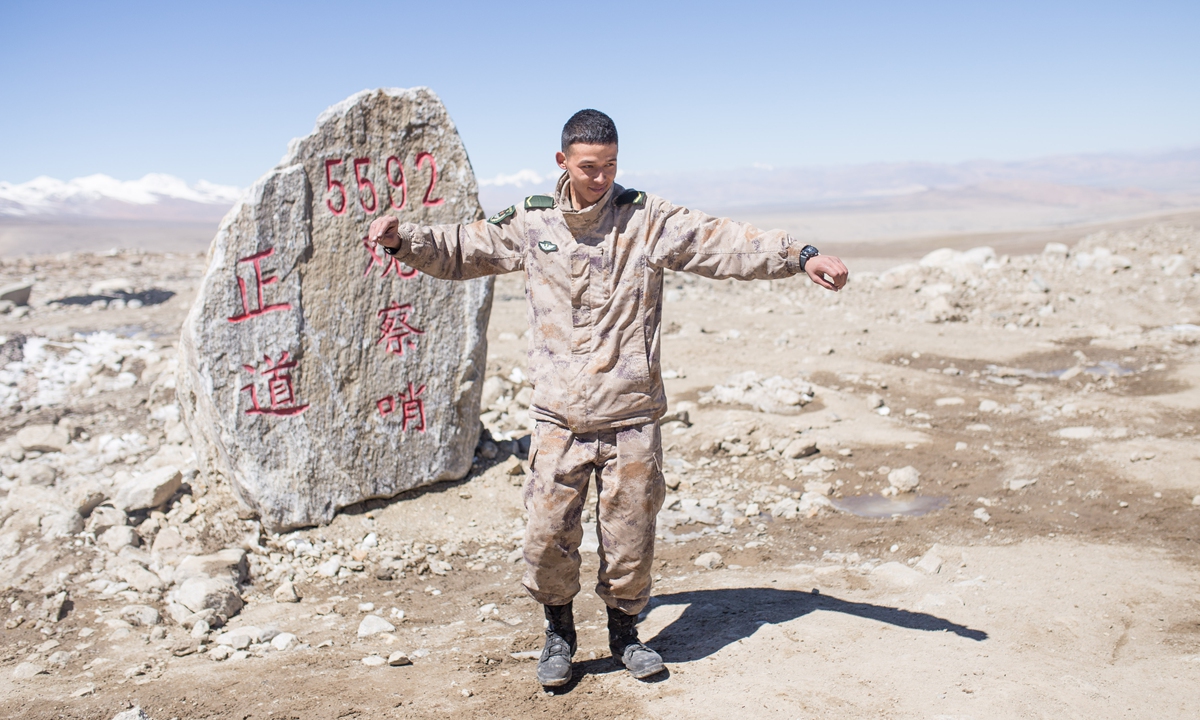
Rouzimaiti Tuerxun performs Xinjiang dance at the 5592 observation point in Xizang Autonomous Region. Photo: Shan Jie/GT
The observation point sits on a mountain peak 5,592 meters above sea level in Xigaze, Southwest China's Xizang Autonomous Region, and is known for being the highest watch post for the People's Liberation Army.
Rouzimaiti was a law student at the Dongbei University of Finance & Economics. He told the Global Times that he had always dreamt of being a soldier. "I feel that we should do something meaningful when we are young," he said. "Being a soldier and being on the frontline defending the border is the most worthy way."
These patriots not only have to give up a peaceful life, but some have made the ultimate sacrifice, giving up their lives for the cause while fulfilling their promise to defend the country.
Border hero Chen Xiangrong sacrificed his life in the Galwan Valley conflict with Indian military in June 2020 when he was only 19 years old.
"My love is crystal clear, it is only for China," Chen wrote when he was 18.
His heroic spirit will live on forever, and the country and the people will always remember the 19-year-old martyr and pay tribute to this young hero and his family.



